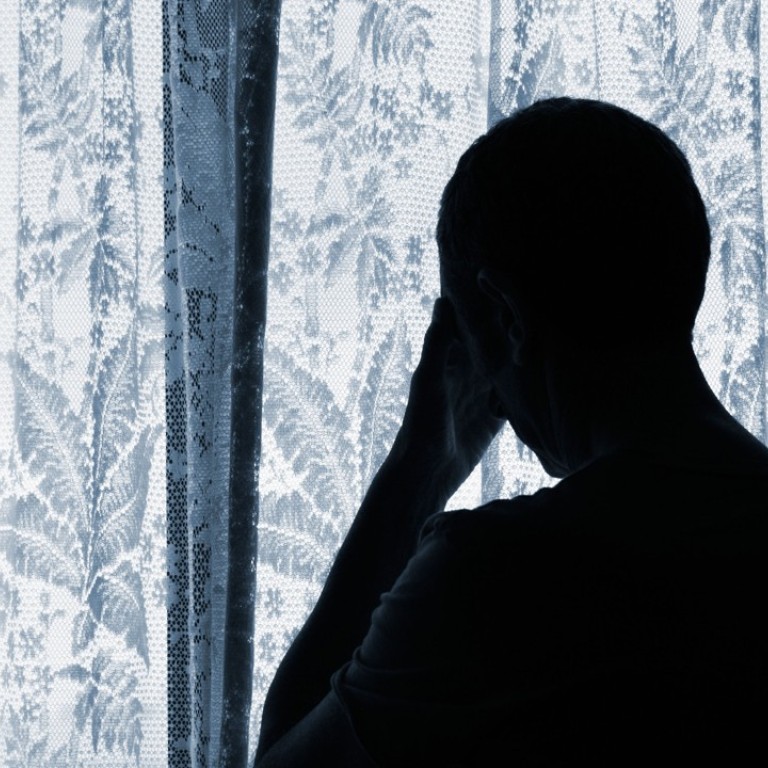
How to talk to and comfort suicide survivors, and better understand their anger and grief
Anthea Rowan learns from someone who witnessed his mother burn herself to death what suicide survivors want to hear from other people, and from a clinical psychologist how best to offer comfort and support
Having lost my father in a road traffic accident, I feel able to support friends and family whose loved ones have died through illness or casualty. But death by suicide places those left behind, the “survivors”, in a whole other, unimaginably painful, realm.
It is almost impossible to understand the feelings of abandonment and confusion that must accompany – and complicate – the grief of a person when somebody they love has chosen to take their own life. Suicide is the ultimate demonstration that dying is a less terrifying option than living, and for those left behind, it can be an agonisingly hard choice to live with.
I worried, as I wrote to a friend whose son committed suicide during an episode of depression, that my words sounded hollow. What could I possibly say to ease the pain? How could I help when I could not understand why it happened, and when she probably couldn’t either?
Suhas Bhat is an editor and financial journalist based in Hong Kong whose mother took her own life when he was just 10.
“My parents were having marital difficulties,” he remembers. His dad immersed himself in his job, leaving his mother, a housewife, at home. Far from her own family, she felt isolated. “I remember her crying a lot and feeling alone.”

One day, with her children at home, the unhappiness and loneliness overwhelmed her, and she burned herself to death. Suhas, who tried desperately to douse the flames and call for help, bore witness. It was a traumatic experience which has branded him.
“I have grappled with depression; I struggle to form friendships because I hate it when I lose people,” he says. “Break-ups are especially hard, so I am afraid of relationships. At the same time, I feel very lonely and I constantly feel like I am too weird and unusual – as if there is something wrong with me that people can readily see.”
For the longest time, I could not tell other people that my mother had committed suicide because I was worried that other people would think less of me
Dr Monica Borschel, a clinical psychologist at MindnLife in Hong Kong, says there is a taboo around suicide because people are afraid that talking to grieving families will remind them of the pain.
“But the pain is always there, whether you talk about it or not,” she says. “Families and friends need extra support if they have lost someone to suicide, and ignoring them or isolating them might increase their grief.”
Bhat adds that such treatment makes them feel as if there is something wrong with them and firmly believes it would help if people talked to survivors of suicide.
“We are often wracked with guilt at losing our loved ones. We often blame ourselves and have very low self-esteem. At the same time, people can only help if they know about our situation,” he says.
“For the longest time, I could not tell other people that my mother had committed suicide because I was worried that other people would think less of me or be worried that I am a broken individual and avoid me because they would be afraid of wounding me.
“At the same time, relationships can feel hollow if I cannot share information that I feel is integral to my personality, so I often struggle to form friendships.”

He agrees that as a society we do not talk enough about suicide, and that it rarely has a voice until a celebrity takes their own life and prompts a dialogue on what caused it.
“We are way too silent on suicide and our concern when it happens is ephemeral,” he says. “Hearing of a celebrity suicide leads to a widespread outpouring of grief, but listening to the stories of normal people who were on the verge of suicide talk about their feelings would make a bigger impact on those people struggling with difficult emotions.”
If we cannot understand the breadth or depth of a survivor’s pain, anger and confusion, how can we help? Friends have told me they can barely engage with those who have lost loved ones to suicide – not for lack of compassion, but because they are afraid to initiate a dialogue lest their condolences ring as empty platitudes.
The best thing they can do, Bhat says, is to educate themselves. He advocates TheMighty.com as a good resource and encourages people to be bold enough to persevere. He adds that while asking a question like “Are you OK?” is likely to elicit only a standard response, something like “If you’re not OK then you can tell me and I can keep a secret” would embolden individuals to speak up.
And if a survivor is brave enough to want to be heard, make sure you really listen.
Tips on supporting a survivor of suicide
1. Accept the person’s emotions and shoulder them. They might be angry. Never tell them to get over it or to move on, nor try to minimise the enormity of an anger you cannot understand. Listen without judgment and never refer to suicide as a selfish choice, a sin, an act of weakness, or a lack of faith, love or strength.
2. Be a safe place for a survivor to give voice to their anger, frustration, fear, relief, sadness or any other emotion they may feel. Just be there with them – sometimes the reassuring presence of someone who cares offers supportive solace.

3. Suicide is traumatic, and that trauma can lead to nightmares and flashbacks. Understand that it is an experience that appropriates much more space in the lives of the bereaved than accidental death or death from an illness.
4. Understand that it is common for people to blame themselves and to feel guilty, but simultaneously remind them it’s not their fault, and that there is no need to assume blame or guilt.
5. Never, ever say, “I know how you feel” – unless you truly do. Suicide loss is not like other losses. Acknowledge, if you like, that you cannot understand the enormity of their grief. This shows you comprehend the complexity of their trauma.
6. Instead say something like, “I don’t know what you are going through, and I am unsure how to help, but I’m here for you no matter what. It’s OK to cry. I want to take care of you.”
7. Offer to help with children or meals. Ask if there are any practical measures you can help with. Be proactive and don’t disappear. Grief is a pain the bereaved live with for years. Those affected by suicide deal with it even longer because unanswered questions extend and complicate it. Don’t be there just for show.
8. Don’t push people to talk if they don’t want to talk, because part of getting over a trauma is avoidance. Never ask intrusive questions about how a person died, but also don’t be afraid to ask sensitive questions, as these can be therapeutic and demonstrate you really do care. Understand that if a person wants to talk, they will. Let them. Don’t shy away from talking if they want you to. Take your lead from them.
People in Hong Kong who are distressed or in need of support can contact the Samaritan Befrienders’ 24-hour hotline on 2389 2222; the Suicide Prevention Services on 2382 0000; or the Society for the Promotion of Hospice Care on 2868 1211. A hotline for those who have lost a loved one to suicide is available at 2382 2737.

